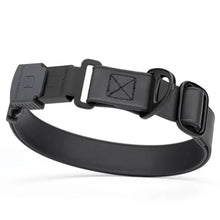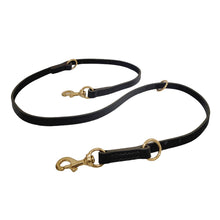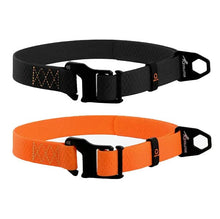Socialization 101: Exposing Your German Shepherd To New Experiences

Everyone wants their German shepherd puppy to grow up to be a confident dog that is comfortable and knows how to behave in a variety of environments. To make that happen, your puppy will need training and socialization.
What is puppy socialization?
Socialization is very important for guardian and working breeds such as German shepherds. It involves the careful process of exposing puppies to various people, places, environments, sounds, animals, and other interesting and exciting things in a controlled way.
The goal of socialization is to prevent negative behavior issues from ever developing. Equally important as training, socialization should begin the day you bring your puppy home. In general, socialization should begin at 8 weeks and continue through 16 weeks.
You can continue to socialize older dogs if needed. However, it will take more time and effort. It’s far easier to socialize a puppy than to try to correct behavior issues. However, if you rescue a dog or a puppy that needs more socialization, happily, it can be done.

At what age should I start socializing my puppy?
A good breeder will begin to socialize their puppies before the dog is placed in their new home. Although you don’t have control over the experience your puppy will have before meeting you, there is a critical window of time between 12 to 16 weeks that you don’t want to ignore.
During this time of their development, your puppy will learn to make associations based on the things they experience around them. They will also study your reactions and body language so stay calm and relaxed. It’s important to expose them to non-threatening things so they make positive associations with their environment and the people they meet.
Negative experiences can cause puppies to become leery, distrustful, fearful, reactive, and even act out aggressively. This is why it’s so important to carefully manage what and how your puppy is introduced to things during this window of time.

What if my puppy is not fully vaccinated?
One challenge to puppy socialization is that it takes time before puppies are fully vaccinated. Fully vaccinated puppies have received all their core vaccines. Most puppies receive their DHPP (distemper, parvovirus) at about 6-8 weeks old. They are then given a booster at 10-12 weeks. Then finally, another booster at 16-18 weeks.
According to the American Veterinary Society of Animal Behavior, “puppies should be exposed to as many new people, animals, stimuli, and environments as can be achieved safely and without causing overstimulation manifested in fear, withdrawal, or avoidance behavior to
reduce the risk of behavior problems” before they are fully vaccinated. They suggest doing this by going to puppy classes.
“The AVSAB believes that it should be the standard of care for puppies to receive such socialization before they are fully vaccinated…. In general, puppies can start puppy socialization classes as early as 7-8 weeks of age. Puppies should receive a minimum of one set of vaccines at least 7 days before the first class and a first deworming. They should be kept up to date on vaccines throughout the class.”
How comfortable you are with this advice is a personal decision. It should always be discussed with your vet and will vary depending on where you live. However, you should NEVER take any unvaccinated puppy to a dog park, or places where there are unknown dogs, or allow them to explore areas around shelters or the vet’s office.

How do I safely socialize my puppy?
Some of the ways you can safely socialize your puppy are:
At home
When you bring your puppy home, everything will be new to them. When introducing them to your house and family members, remember that every new encounter is an opportunity to give them a positive experience that will build their confidence.
Don’t rush your puppy but encourage them with treats and praise when they learn about the new sights and sounds in your home such as who belongs there, the flooring, rugs, furniture, lawn, stairs, doors, trashcans, and more.
Walk them in and around your home and yard. Slowly introduce them to their new surroundings. Don’t force them and let them explore as they feel comfortable, all the while encouraging and praising confident behavior.

Slowly introduce your puppy to new people
Slowly introduce your puppy to people by inviting them over to your house so you can control who they initially meet. Be sure to only introduce 1 or 2 at a time so your they don’t get overwhelmed. This is not the time for a party.
Be sure to include people of all ages, genders, sizes, and ethnicities in and outside of your home. Try to introduce them to people in uniforms, hats, glasses, with facial hair, using a cane or wheelchair, on a bike, etc.
Once they are comfortable meeting people at home, slowly introduce them to people in the outside world. Take them to a friend’s house or to an office. Be sure they don’t get overwhelmed with too many people, which can cause them to feel anxious or fearful.
Be sure to give them lots of praise and treats and understand they are also experiencing a new environment so there are lots of new smells, sights, and sounds along with meeting new people so they may get overwhelmed more easily.

Introduce them to other animals
If you already have pets, this will happen right away. If you don’t, consider attending a puppy class. If you’re not comfortable with a puppy class, introduce your puppy to safe, healthy, vaccinated dogs and cats that belong to your friends and relatives. Give them lots of praise and be sure they don’t meet any dogs with dog aggression.
Slowly expose them to new things
Try not to overwhelm your puppy with too much at once. Slowly introduce them to things that make noise like their leash, the vacuum, garbage disposal, music, doorbell, computer, air conditioner, and more. Take them on short walks and car rides so they get used to seeing new things and hearing new sounds. Always praise and reward confidence, and curious behavior and keep things fun and exciting.
Use play and positive reinforcement
As you socialize your puppy, use treats, praise, and toys to help encourage them to make a positive association with new things. Not only will this help build their confidence, but it is also the foundation for all future training and will help you bond and build trust between the two of you.

Touch and grooming
Part of your puppy’s socialization involves learning to be handled and groomed. Touch their body, paws, and ears, stroke their belly and body. Get them used to being touched like they will at the vet and to make positive associations with their body parts being handled in anticipation of nail trims and the like.
When socializing your puppy, it’s important to keep it safe and fun. Encouragement, praise, rewards, and play are all powerful motivators. You won’t be able to control everything that your puppy might encounter but by carefully preparing for their socialization, you will be able to raise a confident, happy dog.
We hope you enjoyed these tips and find them helpful. As always, please feel free to share them with your friends.
You might also like: Fostering Social Skills In Puppies: Essential Early Training To Ensure Your German Shepherd Puppy Grows Into A Well-Adjusted Adult Dog






















